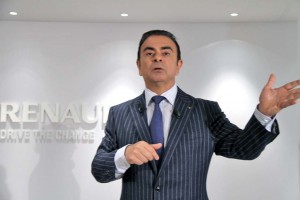While Nissan officials have been actively touting their aggressive plans for China they’ve also been negotiating behind the scenes to get a better position in the promising Russian market – a strategy now set to come together as Nissan and alliance partner Renault acquire a controlling stake in automaker Avtovaz.
Their new Memorandum of Understanding, or MOU, would see Renault invest $300 million in the joint venture, Nissan kicking in another $450 million. And it would help turn the once-decrepit Avtovaz plant in Togliatti into one of the largest automotive manufacturing centers in the world, capable of turning out 1.6 million vehicles annually.
“Today’s memorandum is the latest step in an expanding collaboration that helps modernise the leader of Russia’s auto industry,” said Carlos Ghosn, chief executive of the Renault-Nissan Alliance.
Under the deal, which will become effective in 2014, Nissan and Renault products will roll down the Togliatti assembly line alongside Avtovaz models. It is unclear if Nissan also will use the facility to produce some models badged under the re-born Datsun nameplate.
But that is another critical link in the maker’s strategy to become a dominant player in Russia, one of the most promising of the world’s emerging automotive markets. The Datsun brand will be limited to several select regions, notably Russia, India and Indonesia, explained Ghosn last month. It will focus specifically on low-end models that would be “very difficult to put under the Nissan brand.”
The Avtovaz MOU marks a big jump forward for the Euro-Asian alliance. Four years ago, Renault acquired its first, 25% stake in the Russian maker. The latest agreement is actually a three-way deal, Renault-Nissan partnering with state investment group Russian Technologies. Renault-Nissan will hold 67.13% of that partnership. And, in turn, the three companies will collectively hold a 74.5% stake in Avtovaz.
The Russian deal is the latest in a series of partnerships Ghosn has initiated for Renault-Nissan. The Japanese side of the alliance has created another new brand, Venucia, with its China affiliate Dongfeng. The Venucia brand will have a similar goal to Datsun, targeting the low end of the automotive market in western regions of China just beginning to share in that country’s economic and automotive booms.
Meanwhile, Renault-Nissan has also been expanding a 2010 partnership with Germany’s Daimler AG. Among the most recent developments, Nissan will supply U.S.-made engines to the Mercedes-Benz plant in Alabama, while Mercedes’ new small car platform will be shared by both the Infiniti Etherea and the next-generation of the luxury brand’s G-series models.

